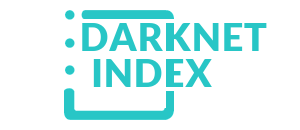The darknet, also known as the dark web, is a concealed section of the internet that's inaccessible via standard search engines. You can only access it using special software, settings, or authorization. This area comprises websites and content that are purposely kept hidden from public view.
Accessing darknet requires using Tor Browser, a special web browser that routes your internet traffic through a global network of relays managed by volunteers. This way, it becomes very difficult to trace which websites you're visiting, and these sites won't know where you are located.
When visiting the dark web, use a secure browser like Tor, do not reveal any of your personal information, and don't open suspicious files or links to stay safe.
The Darknet is often utilized for secure communication, discreet information or file sharing, anonymous research without identity exposure, and occasionally for engaging in illicit activities. It is also recognized for hosting underground black markets(darknet markets), whistleblowing platforms, and discussion boards that champion freedom of speech.
While accessing Darknet Markets themselves is typically not against the law in most places, engaging with illicit goods within them is generally considered a crime. On the other hand, some people might visit Darknet Markets for lawful purposes such as research, journalistic work, or simply to explore online communities. It's essential to know the local laws regarding online activities, and be cautious when using these platforms to avoid any potential issues.
U.S. Government Takes Action Against Russian Money Laundering and Cybercrime
On December 20, 2023, the U.S. Department of Justice (DOJ) announced a joint effort with the Departments of State and Treasury, and various federal and international law enforcement agencies. They aim to disrupt Russian money laundering linked to cybercrime. This multi-faceted initiative included the unsealing of an indictment against a Russian national for facilitating illicit money laundering services and the seizure of websites linked to three illegal cryptocurrency exchanges.
Indictments and Charges
Court documents say Sergey Ivanov, aka "Taleon," is charged with conspiracy to commit bank fraud and money laundering. He allegedly processed payments for the carding website "Rescator." He also laundered proceeds from "Joker's Stash," a major darknet market player. Ivanov reportedly operated for nearly two decades, offering laundering services on Russian-speaking forums to cybercriminals involved in ransomware attacks, data breaches, and other illicit activities.
Timur Shakhmametov, operating under aliases “JokerStash” and “Vega,” has been indicted as well for similar crimes connected to his work with Joker’s Stash, which sold data from approximately 40 million stolen payment card accounts each year, with profits estimated between $280 million and over $1 billion.
Seizure of Illicit Assets
As part of this operation, the DOJ and the U.S. Secret Service executed multiple seizure orders. They targeted domains associated with the cryptocurrency exchange "Cryptex." Without compliance to know-your-customer regulations, Cryptex offered a haven for transactions tied to criminal actions. Blockchain analytics show that over 37,500 transactions linked to Cryptex. They were worth around $1.4 billion, with a large part from darknet markets.
The U.S. and Dutch authorities seized illicit servers linked to money laundering platforms. They recovered over $7 million in cryptocurrency.
Proactive Measures and Future Actions
Principal Deputy Assistant Attorney General Nicole M. Argentieri emphasized that these coordinated actions illustrate that no corners of the internet are safe for cybercriminals. The DOJ is committed to dismantling platforms that enable cybercrime. It said digital anonymity cannot shield such activities from justice.
The U.S. Department of State announced rewards up to $11 million. This is for information that leads to the arrests or convictions of those behind these schemes. Meanwhile, the Financial Crimes Enforcement Network (FinCEN) labeled PM2BTC a "primary money laundering concern" due to its association with illicit Russian finance.
Judging the Impact
The operation shows a strong U.S. stance against rising cybercrime. It targets money laundering schemes that exploit new technology. Deputy Attorney General Lisa Monaco said the crackdown aims to disrupt global cybercriminals. It will send a clear message: "There are no safe spaces for cybercriminals online.""
Conclusion
This effort reflects a rise in cooperation among global police to combat cybercrime and money laundering. The indictments and seizures highlight a commitment to catch cybercriminals. They aim to restore security in both the digital and financial worlds. The investigation will continue. The DOJ will track the cybercriminals' greed and pursue every lead until it finds justice.
